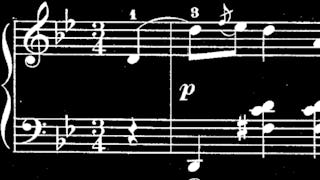Filter by
SubjectRequired
LanguageRequired
The language used throughout the course, in both instruction and assessments.
Learning ProductRequired
LevelRequired
DurationRequired
SkillsRequired
SubtitlesRequired
EducatorRequired
Explore the Music History Course Catalog
 Status: Preview
Status: PreviewYale University
Skills you'll gain: Classical Music, Music History, Music, Music Theory, Instrumental Music, Musical Composition, Art History
 Status: Preview
Status: PreviewThe University of Edinburgh
Skills you'll gain: Music Theory, Music, Classical Music, Musical Composition

Michigan State University
Skills you'll gain: Music Theory, Music, Musical Composition, Classical Music
 Status: Free Trial
Status: Free TrialBerklee
Skills you'll gain: Music, Musical Composition, Music Theory, Peer Review, Education Software and Technology, Instrumental Music, Teaching, World Music, Media Production, Post-Production, Classroom Management, Music Performance, Cultural Responsiveness, Oral Expression, Cultural Diversity, Creativity, Storytelling, Empowerment, Collaboration, Editing
 Status: Preview
Status: PreviewDuke University
Skills you'll gain: Music, Music Theory, Aesthetics, World Music, Cultural Diversity, Psychology, Physiology, Biology
 Status: Free Trial
Status: Free TrialBerklee
Skills you'll gain: Music History, Intellectual Property, Music, Business Management, Business, Team Building, Entrepreneurship, Law, Regulation, and Compliance, Digital Transformation
What brings you to Coursera today?
 Status: Preview
Status: PreviewUniversidad de Palermo
Skills you'll gain: Art History, Ancient History, Aesthetics, Culture, World History, Anthropology, European History, Timelines, Design Elements And Principles
 Status: Preview
Status: PreviewUniversity of Rochester
Skills you'll gain: Music History, Music, World History, Instrumental Music, Music Theory, Electronic Media
 Status: Preview
Status: PreviewWest Virginia University
Skills you'll gain: Music, Music History, Intellectual Property, Consumer Behaviour, Event Management, Live Streaming, Regulation and Legal Compliance, Production Process, Digital Transformation, Promotional Strategies
 Status: Preview
Status: PreviewThe University of North Carolina at Chapel Hill
Skills you'll gain: Music History, Music, Oral Expression, World History, Social Studies, Liberal Arts, Performing Arts, Art History, Cultural Diversity
 Status: Preview
Status: PreviewUniversity of Rochester
Skills you'll gain: Music History, Music, Music Theory, Musical Composition, Instrumental Music, Music Performance, Creativity
 Status: Preview
Status: PreviewYale University
Skills you'll gain: Aesthetics, Art History, Music History, Liberal Arts, Music, Social Sciences, Social Justice, Performing Arts, Pedagogy, Teaching, Public Affairs, Cultural Diversity, Community Development, Advocacy, Case Studies
Music History learners also search
In summary, here are 10 of our most popular music history courses
- Introduction to Classical Music: Yale University
- Fundamentals of Music Theory: The University of Edinburgh
- Getting Started With Music Theory: Michigan State University
- Music Education for Teachers: Berklee
- Music as Biology: What We Like to Hear and Why: Duke University
- Music Business Foundations: Berklee
- Historia del Arte: Del Arte Prehistórico al Renacimiento: Universidad de Palermo
- History of Rock, Part One: University of Rochester
- Today’s Music Industry: West Virginia University
- The American South: Its Stories, Music, and Art: The University of North Carolina at Chapel Hill










